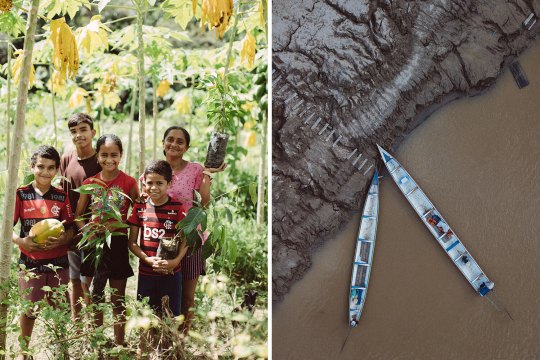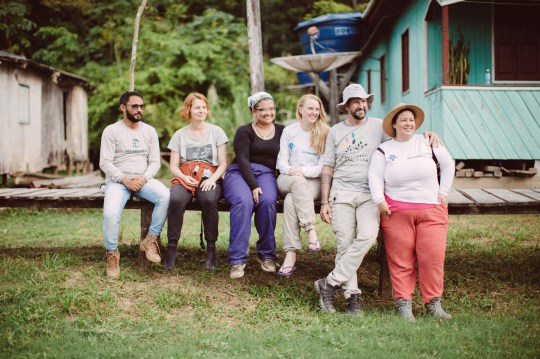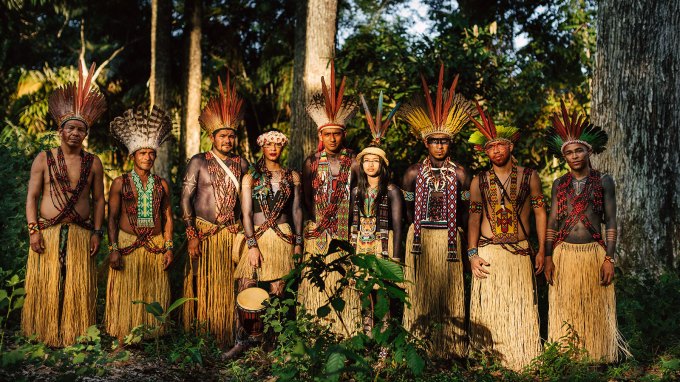After years of devastation, parts of the Amazon’s indigenous lands are seeing restoration, thanks to The Caring Family Foundation (TCFF).
Deep within the vast Amazon rainforest, the Nukini community resides, a remote indigenous tribe that has thrived in harmony with the natural world for centuries. The forest, which provides them with food, shelter, and spiritual grounding, is an integral part of their survival.
But today, the Nukini are engaged in a struggle for their future and the future of the Amazon itself, as they confront the forces of illegal logging, mining, and deforestation.
Often referred to as the "lungs of the Earth," the Amazon produces approximately 20% of the world’s oxygen, playing a critical role in mitigating climate change. Yet, this ecosystem is increasingly under threat. Between 2001 and 2020, over 68 million hectares were lost to deforestation, a figure that continues to grow.
Driven by international demand for resources, illegal mining and logging have decimated vast stretches of the Amazon, pushing indigenous communities like the Nukini to the brink. Once numbering in the thousands, their population has now dwindled to fewer than 1,000 members. Despite the violence, displacement, and loss of their lands, the Nukini remain determined to defend their home.
Partnering with The Caring Family Foundation (TCFF), a non-profit dedicated to restoring the Amazon, the Nukini are working to reverse the damage caused by illegal mining while creating sustainable livelihoods to preserve their way of life.
One of TCFF’s most impactful initiatives is the creation of community seedling nurseries. This year, the foundation will fund 14 nurseries across five regions of the Amazon, including the Nukini territory.

Over the next three years, these nurseries will contribute to restoring degraded lands by producing thousands of native trees, essential to maintaining the rainforest’s biodiversity.
“Each seedling is a symbol of hope,” says one Nukini leader. “We plant trees not only for ourselves but for the world. The Amazon is our responsibility, and we will protect it.”
The initiative also ensures food security and income for Nukini families. By cultivating and selling native trees, fruit-bearing plants, and medicinal herbs, the community earns a sustainable income while playing an active role in reforesting the Amazon.

Families participating in the program are projected to increase their income by 30% within the first year, with further growth anticipated as the nurseries expand.
More than just numbers, the work being done by the Nukini and TCFF exemplifies how indigenous communities are at the forefront of environmental conservation.
While deforestation might seem like a distant issue to some, for the Nukini, it is a fight for survival.
As deforestation claims ever more land—over 8,700 square kilometers were lost in 2022 alone—the efforts of the Nukini and similar communities offer a glimmer of hope.
By restoring their forests and building sustainable livelihoods, they are no
t only fighting for their future but preserving a crucial resource for the entire planet.
Through their partnership with TCFF, the Nukini are planting more than trees—they are sowing seeds of resilience and renewal, ensuring the Amazon’s survival for generations to come.
As global attention shifts toward the threats facing this vital ecosystem, the world could learn a valuable lesson from the Nukini: the battle for the Amazon is a shared struggle, and its outcome will define the future of our planet.
The Amazon, covering 6.7 million square kilometers, spans across nine countries—60% of it lies within Brazil, while Bolivia, Colombia, Ecuador, Guyana, Peru, Suriname, Venezuela, and French Guiana (an overseas territory of France) share the remaining territory.


